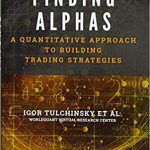Recently, Yale University economist Aleh Tsyvinski and Ph.D. student Yukun Liu in Department of Economics combined finance and analyzed the prediction model of cryptocurrency and risks and rewards of investing cryptocurrencies through a large amount of statistical data. Research aims to identify their basic attributes and compare them to other asset classes. They found that Bitcoin can share the investment risk well, but the probability of collapse is more than 100 times that of the traditional currency; Ethereum will have a negative impact on the financial industry. CNBC, Bloomberg, and Forbes have reported on their research. Chain Wens contacted Dr. Liu Yukun, and talked to him about the phenomena and opinions of cryptocurrencies in the market.
The following content is only discussed as an academic analysis and is not an investment opinion.

Q: Faced with a bear market, cryptocurrency holders are not confident, and the volume /keyword searches is shrinking. According to your judgment, is there still room for improvement in the total market value of cryptocurrencies?
A: From the previous data analysis, there are two factors that can influence and predict the cryptocurrency behavior pattern: the momentum effect and investosrs’ attention.
The momentum effect is that if the bitcoin price rises continuously over a week, it may keep growing for the next week. This is a common feature of almost all known asset classes, and we have found that the momentum effect strongly affects the cryptocurrency. We have designed a simple investment strategy in which investors buy Bitcoin only when their price increases by more than 20% from the previous week. This strategy has excellent returns and a very high Sharpe ratio.
In addition to the momentum effect, investors’ attention have a large impact on the price of cryptocurrency. If people search for a large amount of cryptocurrency on Google or Twitter, the next return on cryptocurrency will rise. At the same time, if investors hold negative concerns, the next rate of return on the cryptocurrency will decrease.
It should be emphasized that the momentum effect and investors’ attention are not unique phenomena in the cryptocurrency market. What we find is that in the cryptocurrency market, if placed in the daily average or weekly average, these two phenomenon is more significant. But if you look at it in the long run, this phenomenon may not be obvious.
From the analysis of past data, if the cryptocurrency behavior mode does not change, when the cryptocurrency market value rises and the attention is high, there will be a greater probability of earning money. Chasing up or killing down? On average, chasing up is easier to make money. Bottom-hunting, unless you know what is the bottom, or it is difficult to have high returns.
Q: Ethereum has plunged 80% from 2018 to the present, and cryptocurrency hedge fund Tetras Capital bearish on ETH. So in the future, how do you judge that Bitcoin or other cryptocurrencies will not crash.
A: We calculated in the report that the probability that the value of Bitcoin will fall to zero and become useless is 0.3%. This data must be viewed scientifically. There is a big assumption behind it. We assume that all investors are risk neutral, that is, they do not consider other risks such as fluctuations. This assumption does not exist in real life activities, but we need this assumption to calculate a guiding number. At the same time, we also calculated the probability of the collapse of traditional currencies. Their probability is too small, for example, the euro is about 0.009%, the Australian dollar is about 0.003%, and the Canadian dollar is about 0.005%. So from another perspective, the probability of a cryptocurrency crash is one hundred times that of a traditional currency.
Q: Do you think the cryptocurrency will form a competitive relationship with the legal currency?
A: Many people like this statement, but the current market does not think so. We care about the views of the financial market, not the different views of everyone.
To make two assumptions: cryptocurrency will become a competitive relationship with fiat in the future. If the cryptocurrency becomes strong and the price is high, the price of fiat should logically fall; the cryptocurrency and fiat coexist in the future. Then the cryptocurrency becomes another kind of fiat. When the cryptocurrency price rises, the price of fiat should also rise. If these two things have similarities, their prices should be related. But the key is that from the data of the past seven or eight years, they are not related. There is no change in fiat when the price of the cryptocurrency rises or falls. Therefore, these two views are not supported in the data.
Q: If there is no exchange, the cryptocurrency is not exchanged. Does it still have value? Is cryptocurrency likely to be priced?
A: Whether it is cryptocurrency or fiat, there is no value without being traded. Because it is a trading medium, it does not produce anything in itself, and its value must be reflected in the transaction. Stocks and bonds are different from cryptocurrencies. Stocks and bonds have their own value and produce dividends. If cryptocurrencies are like financial products like stocks and bonds, we are likely to extrapolate prices by other means.

Q: Does Bitcoin have stored value?
A: As far as our research is concerned, the market believes that Bitcoin does not have the stored value function of traditional metal currency, because Bitcoin has no correlation with gold and platinum in price changes.
Commodity prices are determined by the supply and demand of the market. In a short period of time, we can think that the supply of gold and bitcoin has changed little. If international institutional investors have high risk aversion, gold is used as a means of storing anti-inflation. At this time, prices will rise. If bitcoin has a gold-like stored value function, it must have a part of the price change associated with gold or silver price changes, but the actual data shows that they are not relevant.
However, there is a situation in which young people who are now no longer like gold but prefer bitcoin as a means of storing value. Our research does not rule out this possibility.
Q: How do traditional institutional investors think of cryptocurrencies? Why invest in cryptocurrencies instead of other financial products such as gold and oil? How to treat investors in the crypto market to move bricks and arbitrage?
A: There are two main considerations for choosing to invest in cryptocurrency. The first is hedging, and then diversification of investments, which can help to share risks. From this perspective, Bitcoin is very effective. Bitcoin has little relevance to other financial products and can be used as a very good and diverse means of sharing risk. In our study, through an economic model calculation, if investors believe that Bitcoin has the effect of diversifying risk, then at least 1% should be invested. If investors are optimistic about the development of Bitcoin, the optimal asset allocation should invest 6% of Bitcoin.
There is another way to invest in Bitcoin based on quantitative analysis. From 2011 to today, Bitcoin does give impressive returns, but it is also very volatile. As for the Sharpe ratio, Bitcoin is only a little higher than other financial products.
The act of moving bricks in the cryptocurrency market is not new in financial history. A long time ago, because of the price difference in different markets, some people moved the stock of Philadelphia to the market in New York. At that time, everyone started to report the price every day. It is because the cryptocurrency market is at a very early stage that the arbitrage phenomenon will occur. Suppose that the bitcoin of 5,000 yuan in the A market is transported to the B market of 6,000 yuan, if there are enough people to move bricks or the scale is large enough, the price of the A market will rise, the price of the B market will fall, and the spread will continue to shrink. If there is a strong arbitrage, the time for the spread shrinking will be infinitely close to zero.
Q: At present, the most active area of blockchain technology and cryptocurrency is the financial industry. Why do you think that the healthcare and consumer goods industries will benefit from the development of cryptocurrencies in the future, and the financial, retail and wholesale industries will not be affected by cryptocurrencies?

A: From market data research, Bitcoin and Ripple have little impact on the financial industry, but Ethereum has a negative impact on the financial industry. The view we hold on is that Ethereum puts more emphasis on blockchain technology, because blockchain technology itself will have an impact on the financial industry, rather than the cryptocurrency represented by Bitcoin.
Regarding the impact of blockchain on different industries, Bloomberg suggested on our research that the blockchain or cryptocurrency may have a greater impact on intermediaries than on both sides. Bitcoin has the potential to have a positive impact on the medical and consumer goods industries, but it will not impact the financial, retail and wholesale industries.






